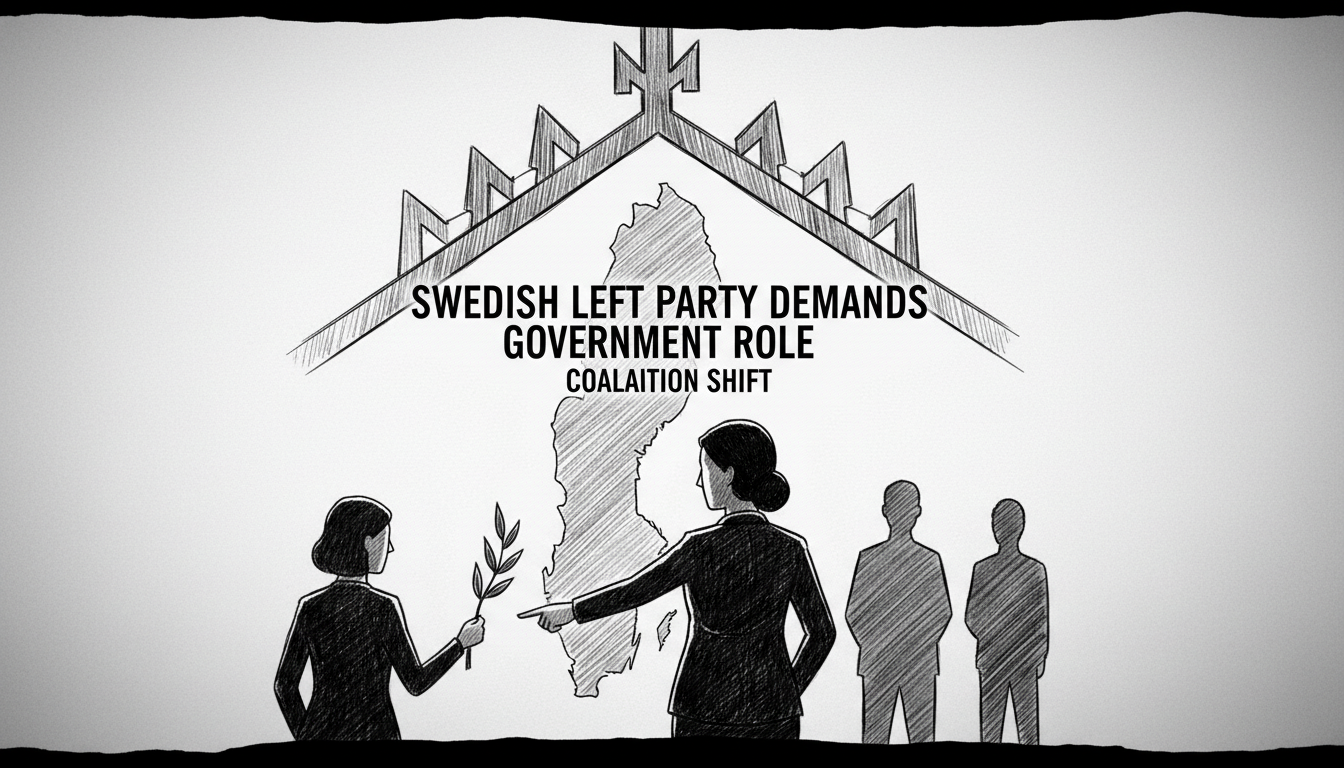The Swedish Left Party has made a bold political move by formally demanding a place in any future government led by Social Democrat leader Magdalena Andersson. The party has written this requirement directly into its election platform document, which outlines its negotiating positions for the upcoming election campaign.
The platform text clearly states the party's new position. It says the Left Party will not support or enable any government that excludes them from participation. This represents a significant shift in Swedish coalition politics.
Party leader Nooshi Dadgostar explained the reasoning behind this strategic decision. She specifically avoided using the word 'ultimatum' to describe their position. She stated that ultimatum sounds unpleasant and undemocratic. She emphasized this approach reflects democratic principles rather than hardline tactics.
The Left Party primarily aims to govern alongside the Social Democrats and Green Party. Dadgostar shows openness to including the Center Party in a potential coalition government. This flexibility depends on whether their parliamentary seats are necessary to secure a majority.
The Center Party recently elected Elisabeth Thand Ringqvist as its new leader. The party has consistently rejected cooperation with the Left Party at the national level. This creates a challenging political dynamic for potential coalition building.
Dadgostar directly addressed the new Center Party leader. She extended an invitation for dialogue and cooperation. She stated that if Ringqvist shows interest, she would be welcome to meet and discuss potential collaboration.
This development reflects the complex reality of Swedish minority governments. Sweden has experienced political fragmentation in recent years. No single party commands majority support in the Riksdag. This forces parties to negotiate and form complex alliances.
The Left Party's move represents a calculated risk. They aim to increase their political influence by making their support conditional on government participation. This strategy could either strengthen their position or leave them isolated if other parties reject their demands.
Swedish politics has evolved significantly since the traditional left-right blocs began breaking down. The once-clear political divisions have become more fluid. Parties now navigate complex negotiations and shifting alliances.
International observers should note that Swedish coalition governments typically require support from multiple parties. The country often operates with minority governments that depend on external support agreements. This makes each party's positioning crucial for stable governance.
The coming months will test whether this strategy proves effective. Other parties must now respond to the Left Party's new demands. Their reactions will shape the possibilities for future government formation in Sweden.

